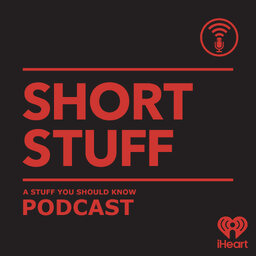John Lennon and the FBI
Did you know that Richard Nixon had a FBI case file open on Beatle John Lennon? Well he did! Why? Listen in to find out.
Learn more about your ad-choices at https://www.iheartpodcastnetwork.com
In 1 playlist(s)
Stuff You Should Know
If you've ever wanted to know about champagne, satanism, the Stonewall Uprising, chaos theory, LSD, …Social links
Follow podcast
Recent clips

Selects: Operation Mincemeat: How A Corpse Fooled the Nazis
45:18

The Magnificent Golden Gate Bridge
50:53

Short Stuff: Magic 8 Ball
12:42
 Stuff You Should Know
Stuff You Should Know